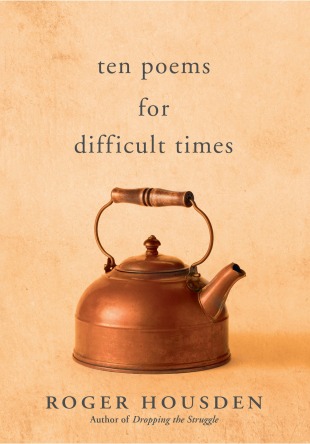In his introduction to the seventh volume in his bestselling Ten Poems series of gift book anthologies, Roger Housden observes:
"Poetry uses words that are known to all of us but in sequence and order that surprises us out of our normal speech rhythms and linear thought processes. Poetry uniquely combines imaginative power and conscious intelligence, inspiration and hard work, and its effect is to illuminate our lives and breathe new life, new seeing, new tasting into the world we thought we knew."
As usual, Housden has chosen a top-drawer selection of poems which shed light on our world and give him a chance to ruminate about their manifold messages. We were impressed with his interpretation of Conrad Aitken's poem "The Quarrel" as "a redemptive treatment of a mundane situation that any of us can see ourselves in."
Housden moves on to delve into the deep meaning and solace offered in "Cutting Loose" by William Stafford; from two lines – "Sometimes from sorrow, for no reason, / you sing" he notes how "a song can transform personal sorrow into something approximating joy," noting the poet's "gift of a generous view, with a deep sense of gratitude for the simple fact of being alive and being able to see, hear, taste, and touch the richness of the everyday world."
"Rain Light" by W. S. Merwin gives Housden the opportunity to laud wonder and mystery as "an intrinsic part of the creative act of writing poetry." "Now You Know the Worst" by Wendell Berry draws out Housden's feelings about both the human capacity for destruction and the formidable human ability to love even one's enemies. The last three poems in this collection by Jack Gilbert, Nazim Hikmet, and Marie Howe deal with the ways in which the personal and the political intersect. The collection also includes poems by Maggie Smith, Ellen Bass, and Jan Richardson (see excerpt).
